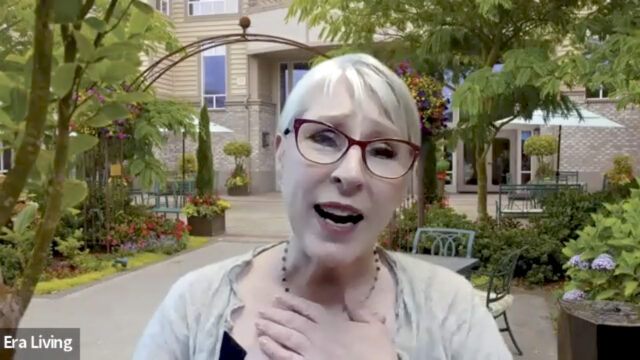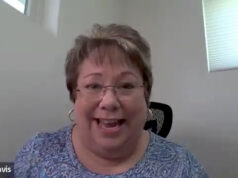Suzanne: And welcome back everyone to Answers for Elders Radio Network. And I’m here with my dear friend Tina Hall from Era Living in the Greater Seattle area. And yes, I’m a Seattle girl as you all know, but we’re so happy to have so many cities joining us across the US every week. And so I am very excited to be having this conversation, because oftentimes I will hear sons and daughters say, oh, mom or dad are just fine, but they don’t really take the time to listen, they don’t take the time to notice. They’re maybe not allow around very much. And the challenge is is that mom and dad oftentimes aren’t making decisions up front for their future. And so this is really about we’re talking to you, that 70 year old, even the late 60 year old, that if you have mobility issues or things like that, this is the time to start planning for that absolute 99% sure, next chapter in your life. And so, Tina and I’ve been talking about different ways in which to think about your life, what is it that you want? But I’m gonna throw a little question to you in this segment. Tina, what happens if you outlive your money?
Tina Hall: That is the question.
Suzanne: Let’s say you have $300,000 in your house, and you don’t know how it’s gonna sustain you.
Tina Hall: That is a big fear I think everybody has and I, I know it’s going to be different depending on what community you live in, because the cost of housing and care varies greatly from region to region, just like just like the cost of renting or buying a house does. So you need to really have a realistic understanding of what your needs are, and how long you’re likely to need care, and you need to have an understanding of what things cost in your area, so you can kind of do that calculation. There’s often a fear that I don’t have any money, because say maybe all my money is in my house, right? But you need to remember to count that. that’s usually your biggest financial asset and oftentimes that’s what’s going to pay for your care ultimately. But if you come to the to the realization that gosh, I’m probably gonna need care maybe 5 to 10 years, and I only have enough money to last me two years, you really have to take that into consideration when you’re looking for a community. You may not be able to move to the community that you would prefer, because they may not have programs to support you once you run out of money, right? For example, they may not take Medicaid as a form of payment. Many urban locations do not accept Medicaid as a form of payment, so you may need to be looking a little further afield than you might initially to do. And before you move to a community, you really want to have that financial conversation up front with the community relations representative, so that they can guide you and they can honestly tell you this is not going to be the long term solution for you, because you will run out of money here. There are elder care advisors that can help you find communities that will accept Medicaid as a form of payment when you run out of money if that is likely. But there are also other programs to explore. There is the veterans aid and attendance program that you might be eligible for if you are service qualified and financially qualified. And let’s see what else of course, needs qualified. So as you enter this process, you want to have a realistic understanding of your own physical needs. Have a realistic understanding of your own financial situation, and then have that tough conversation with yourself about what you are willing to accept and what you’re not willing to accept. If you don’t have a significant amount saved to cover your cost, be willing to compromise. But the one area I will say don’t compromise in, don’t compromise in your care choices. I’m very fortunate in that I work for an organization that has absolutely beautiful communities and wonderful care. But ultimately, the beautiful community is wonderful to have, but the care is essential. So if you have to make that decision between, do I move to that community that has that stunning lobby or do I move to that community that might not be perfectly aesthetically what I want, but they will allow me to convert to Medicaid if I run out of money, be willing to compromise in certain areas if that’s what you need to do because ultimately, you want to be in your care situation for as long as possible, you need to be in a situation that is going to support you as you age and hopefully not have to move again.
Suzanne: Absolutely. You know, and so we’re gonna talk about when you go visit a community, how do you ask the right questions? How do you make sure that you’re going to fit in. What are the things that they may not tell you that you probably need to ask? And Tina and I, we’re gonna be right back right after this.














